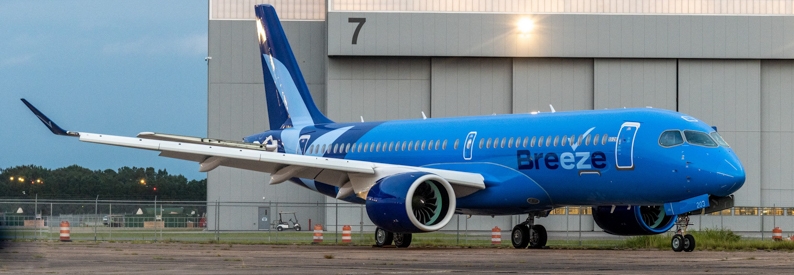Breeze Airways Minimizes Impact of Tariffs on A220 Fleet

Breeze Airways CEO David Neeleman has downplayed concerns about the impact of U.S. tariffs on the airline’s Airbus A220-300 aircraft, despite acknowledging that building the jets in Canada adds cost. Speaking to Bloomberg, Neeleman noted that the aircraft, produced at Airbus’ Montréal Mirabel facility, are subject to tariffs on certain components, including the wings. However, he emphasized that Canada remains part of the United States-Mexico-Canada Agreement (USMCA), offering some trade protections.
He pointed out that Airbus is working to ease trade tensions by expanding its U.S. footprint, particularly at its Mobile, Alabama assembly site, which employs 2,000 people and plans to grow to 3,000. Neeleman stressed the importance of aviation to the U.S. economy, highlighting the country’s $124 billion in annual aviation exports versus $20 billion in imports. He warned against policies that could harm a vital export sector.
Despite the added costs, Neeleman said the A220 remains the ideal aircraft for Breeze’s business model. The jets generate comparable revenue to Spirit Airlines flights, even though Breeze’s A220s carry 100 fewer seats per departure. Breeze currently operates 37 A220-300s, 10 Embraer E190s, and 3 E195s, with the Embraer fleet scheduled for retirement. The airline has 55 more A220-300s on order, according to ch-aviation data.
Neeleman added that Breeze expects to achieve profitability in the second quarter of 2025. While there is some softness in U.S. domestic demand, particularly on transcontinental routes, fuel prices are stable, helping to support the airline’s financial position.
Related News: https://airguide.info/category/air-travel-business/airline-finance/
Sources: AirGuide Business airguide.info, bing.com, ch-aviation.com
